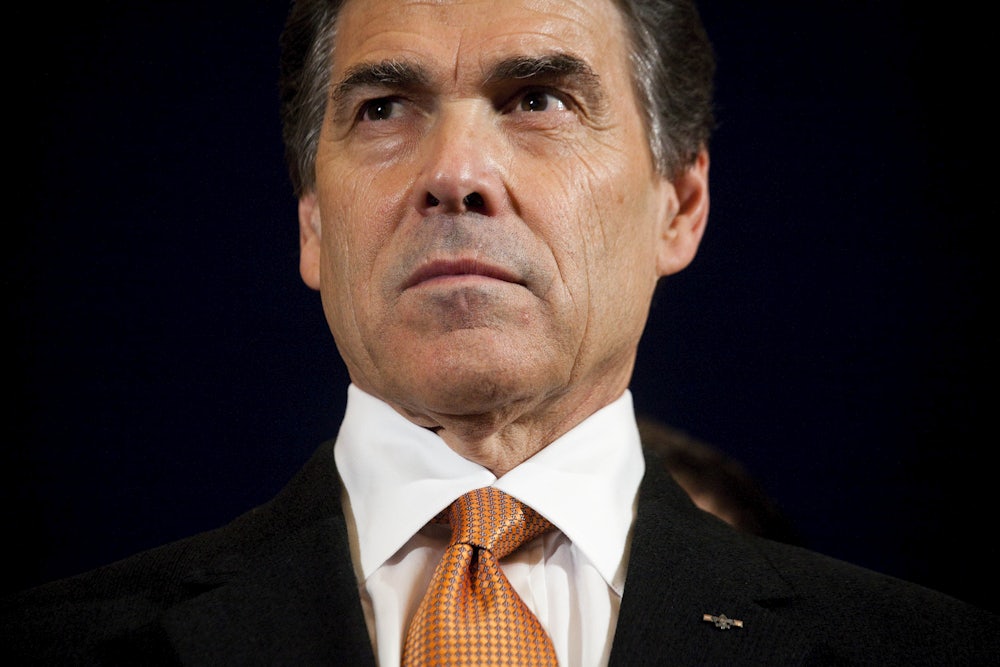Now that President-elect Donald Trump’s cabinet choices have mostly been announced—the latest being Russia BFF and ExxonMobil CEO Rex Tillerson for secretary of state, and ready-to-run-the-agency-he-forgot-he-wants-to-abolish Rick Perry for secretary of energy—progressives are understandably apoplectic. It’s not just that Trump’s choices give new meaning to the term “radically conservative,” it’s that so many of them are either wildly inappropriate for or vehemently at odds with the respective departments they’ve been selected to run. While Trump can certainly be said to be “shaking up” Washington with his picks, it is also true that, by nominating so many fringe candidates at once, Democrats (and a handful of Republicans) will only be able to muster up real opposition to two or three of them at most, allowing the others to slide in.
This cabinet threatens to totally dismantle President Barack Obama’s legacy, and promises an oligarchical, ultraconservative reshaping of government. One would think that the Democrats on the Hill would be in the midst of executing a cohesive strategy to oppose these picks. Instead, they have been near useless, tweeting their concerns about individual nominees, discussing the procedural tactics they will use to delay confirmations, or offering their milquetoast displeasure on the cable news networks.
We need look no further than the attempt to fast-track Senator Jeff Sessions’s nomination for attorney general to understand the Republican strategy with these controversial picks: Move very quickly on all fronts. So quickly that it’s difficult for the media and the opposition to focus the necessary amount of attention on each case.
The cabinet choices all must submit a Senate Judiciary Committee questionnaire before their hearings so that the senators can adequately prepare their questions. But some of the groups that have already examined the public document that Sessions provided are calling it “woefully inadequate” in its current form and full of many glaring omissions. These include a lack of records for many of the interviews Sessions did with radio, print, and television outlets prior to 2002; no records of the speeches he gave before 1999; and no mention of several of the op-ed pieces he wrote. The most glaring omission, though, was that Sessions was rejected by a Republican Senate for a federal judgeship in 1986 over allegations of racism.
Even if the Republicans already have the votes to confirm Sessions, it is remarkable that congressional Democrats are putting up such tepid resistance to him or any of the other nominees. If they are waiting for the hearings themselves to voice their concerns more stridently, then they are not only misreading the current national mood, but also losing a unique opportunity to make the kind of case that this week’s headlines are practically screaming they make: that Trump’s presidency is already irredeemably compromised. His cabinet picks are just the latest evidence of that, coming on top of losing the popular vote by nearly three million votes, dismissing concerns about the Russian hacking scandal, and refusing to resolve his unprecedented conflicts of interest.
If Democrats still believe that Trump is a threat to democracy—which was the overriding theme of the Hillary Clinton campaign—and that his cabinet picks only confirm this characterization, then they need to act accordingly. A campaign that focuses only on the individual shortcomings of each candidate isn’t going to sway a public that needs an overarching storyline. The Russia hacking story has so much traction precisely because it is that kind of story. Democrats have an opportunity to package it all together, to claim that the Putin-enabled, popular vote–loser is trying to radically dismantle our government institutions with his outrageous choices. They can rally against the Wall Street friendly millionaires and billionaires Trump has nominated as proof that Trump is not draining the swamp but expanding it. They can point out, far more vociferously, how his picks demonstrate a wholesale disregard of his campaign promises. After all, how does a president who ran on a vow not to touch entitlements nominate Tom Price to lead Health and Human Services? He is a leading proponent of plans to overhaul Medicare and Medicaid.
Progressives shouldn’t hold their breath for Senate Democrats to announce that they’ll be voting against the cabinet picks en masse. But at the very least Democrats should present a clear, convincing vision of the nightmare that the Trump presidency is already shaping up to be.
